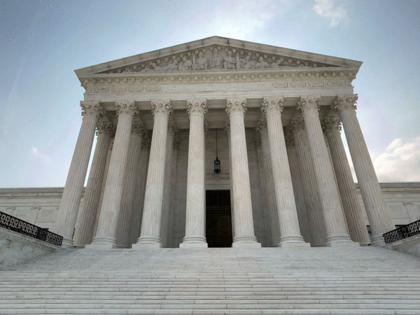Noah Feldman: New Trump charges expose the Supreme Court's failings
Published in Op Eds
Jack Smith is calling the Supreme Court’s bluff.
In the wake of the court’s controversial decision earlier this summer granting Donald Trump criminal immunity for official acts committed while president, Smith has refiled his indictment charging Trump with offenses connected to Jan. 6. This time, he has left out conduct the justices identified as clearly official while leaving in conduct where the justices said there were still complicated issues to be resolved.
No trial will take place before the election. But if Kamala Harris becomes president and the federal district court allows the remaining charges to proceed, Trump could still find himself facing trial for trying to subvert the outcome of the 2020 election. Then the case would wend its way back to the Supreme Court, which would be forced to confront the consequences of its immunity decision.
In a sense, Smith’s decision to refile charges goes all the way back to April, when the Supreme Court heard oral arguments in the immunity case. Then, Justice Amy Coney Barrett walked Trump’s lawyer through a series of elements of the criminal allegations, getting him to admit that each involved private conduct, not official presidential acts. As I noted at the time, Barrett was trying to create a roadmap for Smith to keep the prosecution alive even if the court issued a sweeping judgment requiring immunity for official acts, as indeed it did.
Concessions at oral argument don’t have the force of law in subsequent criminal proceedings, especially given that those concessions happened before the Supreme Court laid out its new (and extreme) legal standards for presidential immunity.
But Barrett’s efforts at oral argument at least sent Smith the message that he had the option of keeping the criminal case alive. For him not to have refiled charges would have seemed like throwing in the towel — not a good look for any federal prosecutor, and especially not for someone as tenacious by reputation as Smith.
The main shift in the new indictment is to categorize Trump as having acted criminally in his private capacity as a candidate for office in 2020, not as a sitting president. The shift follows the Supreme Court’s logic in immunizing Trump for official acts. And the new characterization is plausible, given that Trump was indeed trying as a citizen, not as president, to be reelected.
What is lost in the transition to the new formulation is the reality that Trump also tried to use his powers as sitting president to advance his private interests — a key part of the original indictment. Gone are the allegations of Trump conspiring with Department of Justice officials to get legitimate election results thrown out.
Removing the allegations that Trump abused his official powers is the only available legal strategy for Smith now that the court has ruled. The special prosecutor has no other choice.
The change, however, dramatizes part of what was so wrong with the Supreme Court’s opinion. It simply cannot be part of the genuine official powers of the president of the United States to criminally interfere with lawful election results. Immunizing Trump’s alleged conduct committed using his presidential powers subverts the rule of law. It all but invites future bad-actor presidents, potentially including Trump, to make sure their criminal acts have an official cast to avoid prosecution.
If Trump is elected, his Justice Department will withdraw the criminal charges against him, and Smith’s refiling will end up in the dustbin of history. When the Supreme Court decided the immunity case at the beginning of July, Joe Biden was still the Democratic candidate, and Trump’s victory seemed very probable. Now, with Kamala Harris as the Democratic candidate, the odds look very different. So Smith’s decision to refile isn’t merely the honorable act of a warrior sure to go down in the fight.
Similarly, Smith’s decision to appeal the dismissal of the charges brought against Trump in federal district court in Florida — the charges on retaining classified documents — will be more than symbolic if Trump loses the election.
But even in the scenario where Harris becomes president and the case goes forward, the Supreme Court will get the last word. Trump will appeal a decision by the federal district court in Washington to let these charges stand. After passing through the US Court of Appeals for the DC Circuit, such an appeal would end up with the justices. They would then have to apply the rules that they created in July.
The upshot is that Trump could still conceivably face conviction and sentencing in federal court. But don’t count on that happening anytime soon.
____
This column does not necessarily reflect the opinion of the editorial board or Bloomberg LP and its owners.
Noah Feldman is a Bloomberg Opinion columnist. A professor of law at Harvard University, he is author, most recently, of “To Be a Jew Today: A New Guide to God, Israel, and the Jewish People."
©2024 Bloomberg L.P. Visit bloomberg.com/opinion. Distributed by Tribune Content Agency, LLC.




























































Comments